Should Liberals let asylum seekers from U.S. enter Canada safely at border crossings?
Critics say suspend deal with U.S. that makes risky, illegal border crossings necessary
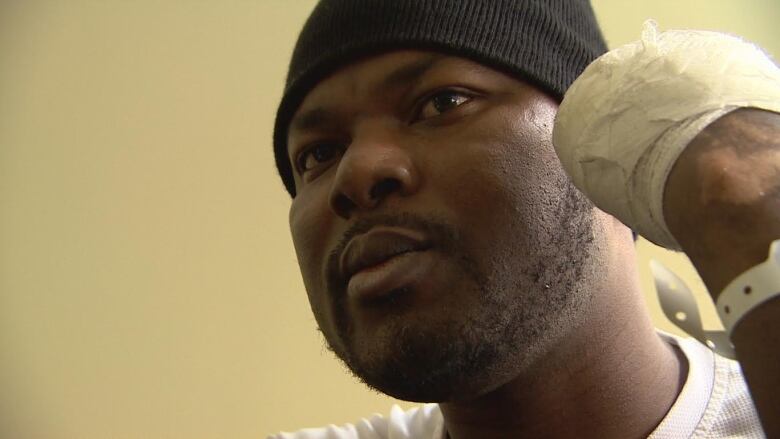
It was probably unavoidable that when federal bureaucrats met with reporters on Thursday to discuss how the government is handling the growing number of people entering Canada illegally from the U.S. it would boildown to numbers.
Officials said Thursday more people made refugee claims at inland points places other than official border crossings during the first seven weeks of this year: 2,281 compared to1,803 during the same period last year.
Over that same brief period, 435 people have crossed illegally into Canada and were arrested by the RCMP.
And then there was this number:officials said no one has been charged, at least not yet, for doing so.
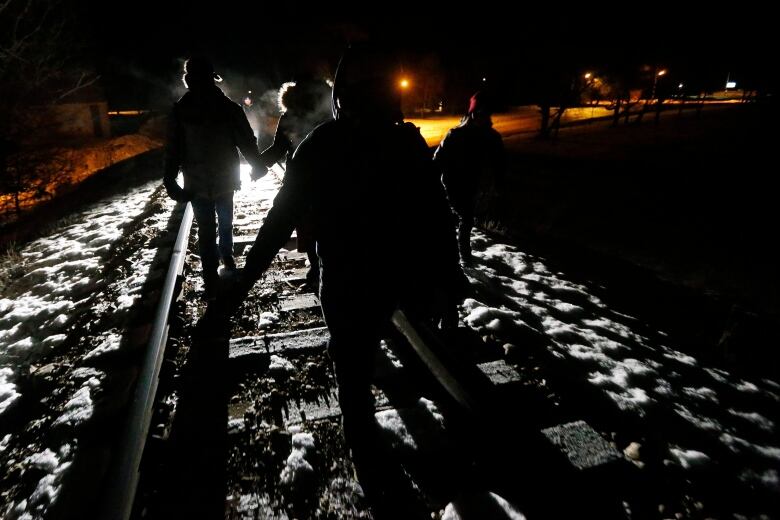
For Canadians who've seen the images of entire families arriving at the border, toting their luggage and little else, the numbers shouldn't be much of a surprise in the aftermath of U.S. President Donald Trump's orders directing the immediate arrest and deportation of illegal immigrants on Jan. 25and the temporary ban on travellers from seven mostly Muslim countries signed two days later.
The fear of being forcibly removed, in many cases to a country the asylum seeker fled to avoid persecution or death, has prompted someto head north in the depths of winter.
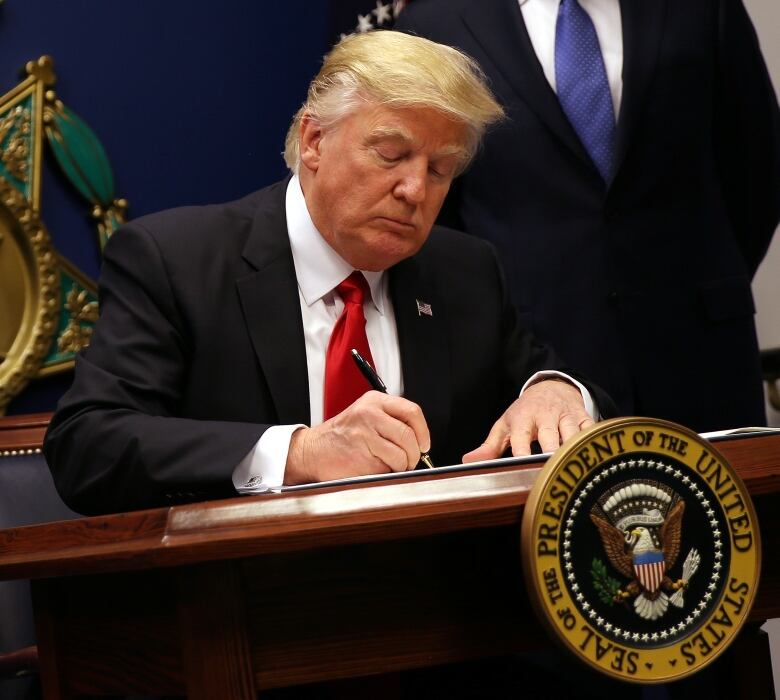
Many would have already known of Canada's generous refugee policy, the income supports and basic health benefits they would receive as refugee claimants. Some might even have seen the tweet by Prime Minister Justin Trudeau after the announcement of Trump's travel ban, since suspended by the courts, welcoming all those fleeing persecution, terror and war.
To those fleeing persecution, terror & war, Canadians will welcome you, regardless of your faith. Diversity is our strength #WelcomeToCanada
—@JustinTrudeauAnd most would have been aware that they had to cross illegally into Canada, at unofficial and largely unpoliced points along the world's longest undefended border, or risk being returned to the U.S. under a deal called the Safe Third Country Agreement. It requires asylum seekers entering at land border crossings to apply for refugee status in the country where they first arrived.
Such agreements are intended to prevent "asylum shopping," where people move from country to country until they find one they like, and situations where people ruled inadmissible in one country move to another and another until their refugee claim is accepted.
Critics of the agreement say it should be suspended to reduce the risks faced by those trying to get into Canada, risks that include frostbite and being abused by smugglers.
- 'We saw what happened in the airports': Asylum seekers surge into Manitoba
- Frostbitten would-be refugee on road to recovery
Janet Dench, executive director of the Canadian Council for Refugees, says before the Safe Third Country Agreement became law in 2004, Canada dealt with asylum seekers without these issues and without overwhelming the RCMP, CanadaBorder Services Agency or other government departments.
"It never caused the fall of Canada. There's no reason to think we couldn't go back to what we had in the past, and we would avoid the situation that we've been seeing with people crossing irregularly."
Jenny Kwan, the NDP's critic for immigration and refugees, argues the U.S. is no longer a safe alternative to Canada.
"The executive orders from President Trump, the massive crackdown on undocumented immigrants all make it very clear that the United States under Trump no longer meets that criteria," she said in the Commons earlier this month.
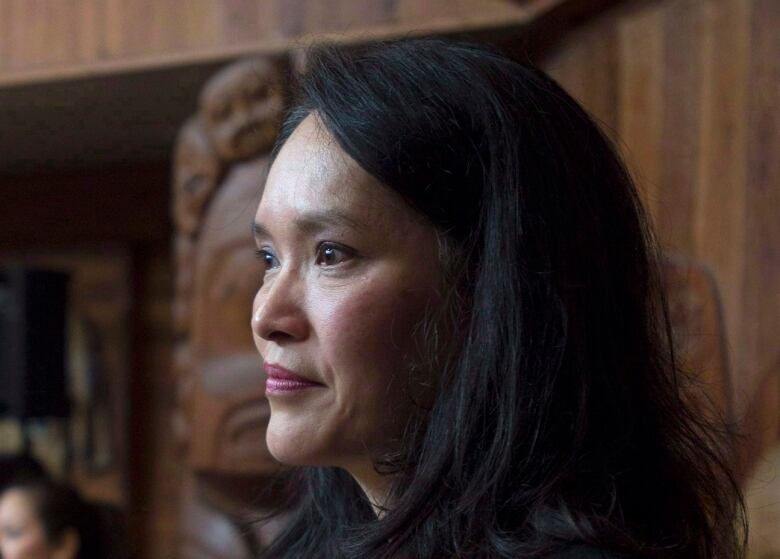
Others, including most if not all of the Conservative leadership candidates, want the agreement enforced and enforcement strengthened, including byhaving officers on the border ordering asylum seekers to turn back.
"We have a fair and generous process for refugees around the world," leadership candidate Erin O'Toole said in an interview with CBC Radio's The House.
"And it's unfair to them to allow people to use politics to jump ahead of the queue and to overwhelm rural parts of our border."
'Queue-jumping' problem
Public Safety Minister Ralph Goodale concedes the public perception of "queue jumping" is a problem. A spokesman forGoodalesaid it's important to note that no one already in the regular refugee system is being displaced by the people crossing into Canada illegally.
And Goodale insists the processes Canada has in place ensure there's no threat to Canadian security.
Government officials involved in Thursday's technicalbriefing told reporters that biometric data is being gathered from everyone who enters the country illegallyto determine if any are inadmissible to Canada on security grounds.
Still, a 2013 report by the auditor general on illegal entry into Canada found gaps in the system, and says failing to prevent illegal entry not only compromises security but costs taxpayers an estimated $26,000 for each rejected refugee claimant.
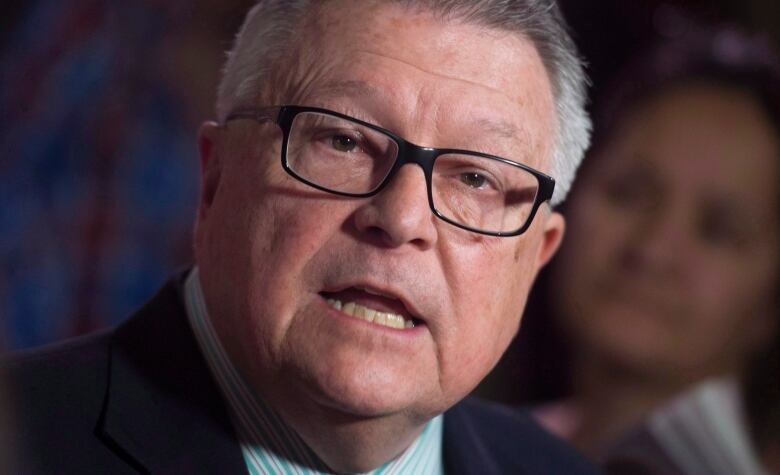
Scrap agreement?
So how much of a problem is it that so many people are now trying to get into Canada illegally? Should Canada suspend the Safe Third Country Agreement until the situation created by Trump's executive orders is clearer?
John Manley, the former Liberal cabinet minister who negotiated the deal with the U.S. back in the early 2000s, says the answer to the second question is no.
"If you suspend it, then they can cross at regular border crossings," Manley told CBC News Network's Power & Politics this week. "Forget 30 here, 20 there that are going through Minnesota into Manitoba now, you're starting to deal with thousands of people."
Dench argues suspending the agreement would lead to a more orderly flow of people wanting to claim refugee status.
"It's important to realize that people coming through the U.S., although there's a lot of focus on those people who are concerned about Trump, in fact quite a large number of people who are coming were destined for Canada anyway."
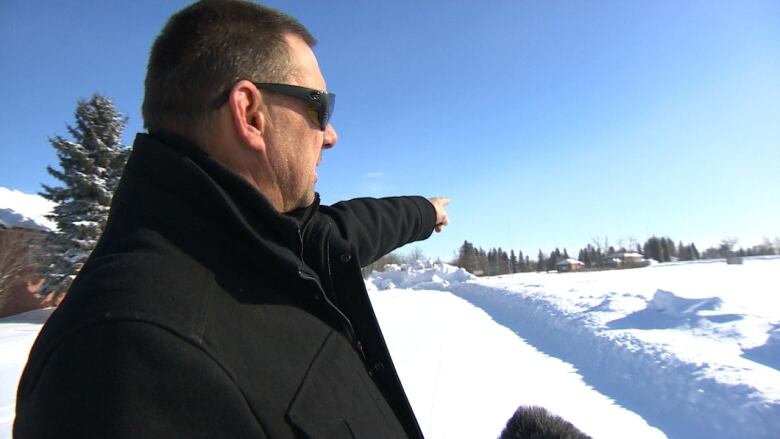
Immigration lawyer Lorne Waldman believes Canada needs to educate potential asylum seekers south of the border that they won't necessarily be any better off in Canada.
"If you've lived in the Unites States, for example, for seven or eight years illegally and you come to Canada to make a refugee claim you're going to have a hard time convincing a judge in Canada that you have a fear of returning, not to the United States, but to your country of nationalitythat you haven't lived in for nine or 10 years."
Ralph Goodale says he will be meeting with U.S. officials to discuss what can be done to stem the flow.
For now, there's every reason to expect more and more people will cross into Canada illegally to claim refugee status. And for Canadian authorities who must sort through the claims, and identify any potential risks, that adds up to a lot more than just numbers.
Corrections
- This story has been edited from a previous version that incorrectly stated the number of refugee claims made at inland points in Canada, so far this year was double last year's total. In fact, the numbers are 2,281 in the first seven weeks of 2017 compared to 1,803 during the same period last year.Mar 03, 2017 10:07 AM ET












_(720p).jpg)


 OFFICIAL HD MUSIC VIDEO.jpg)
.jpg)



























































































